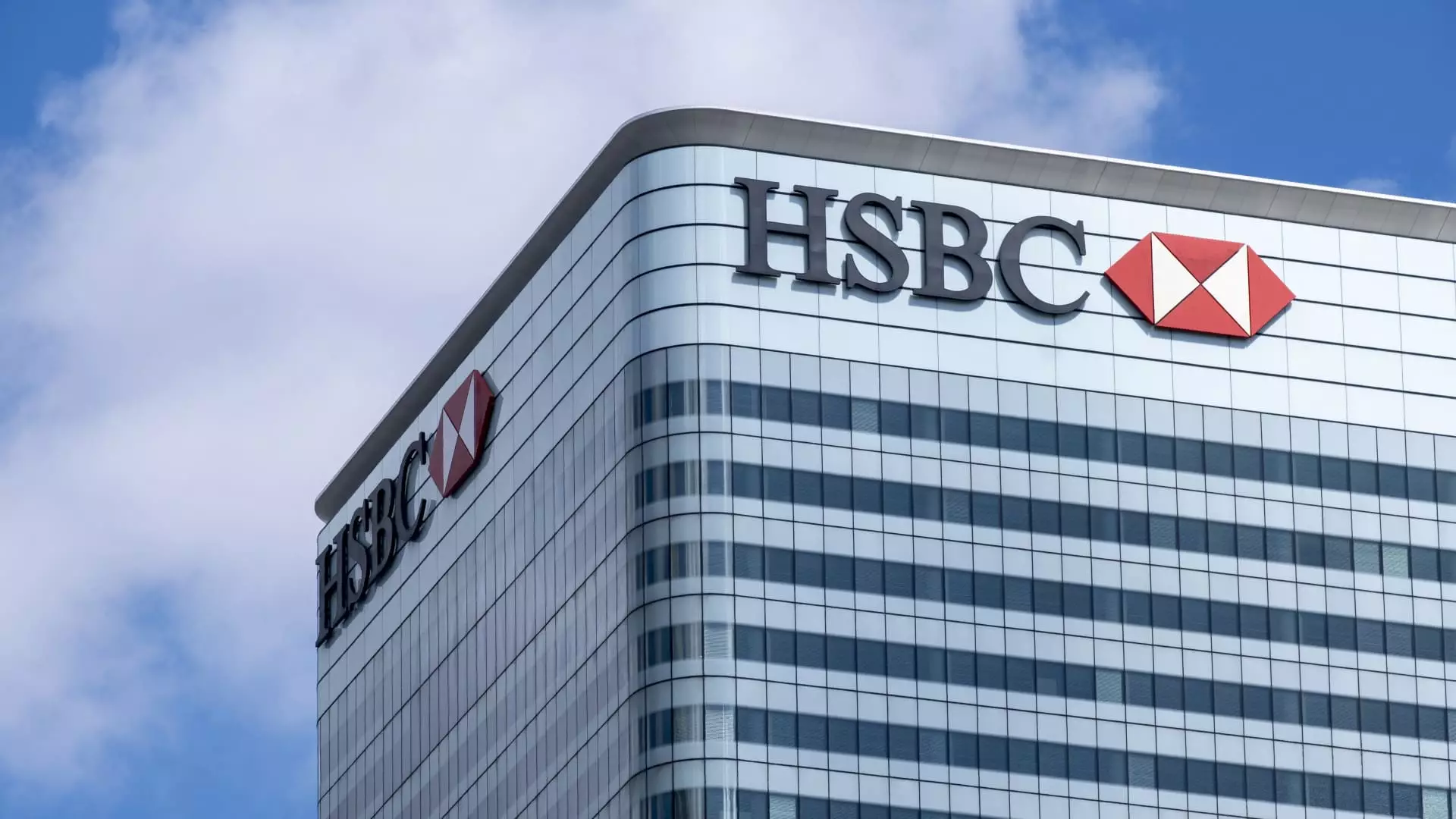On Tuesday, HSBC, Europe’s largest bank, reported its third-quarter earnings, demonstrating resilience in a fluctuating financial landscape. The announcement of a substantial share repurchase program, amounting to $3 billion, coincided with commendable financial performance that surpassed analyst forecasts. The pre-tax profit reached $8.5 billion, outpacing expectations of $8 billion, while revenue surged to $17 billion, exceeding the anticipated $16.2 billion. Notably, this pre-tax figure marks a 10% increase from the $7.71 billion reported in the same quarter last year, suggesting HSBC’s capacity to adapt and thrive despite existing economic headwinds.
The profitability metrics also highlighted a noteworthy growth trajectory. Profit after tax stood at $6.7 billion, reflecting a $500 million incremental gain over the previous year’s third-quarter figures. This robust performance aligns with a broader trend observed across financial institutions navigating the repercussions of fluctuating interest rates and evolving market conditions.
The announcement of the share buyback initiative signals HSBC’s commitment to returning value to its shareholders. This latest buyback pushes the total for the year to a significant $9 billion, following two previously announced repurchase programs earlier in 2023. The overall strategy appears to have resonated positively with investors, as evidenced by a notable 3.5% increase in HSBC shares during afternoon trading in Hong Kong post-earnings release. This enthusiasm points towards investor confidence in HSBC’s ongoing capacity for growth despite an increasingly competitive and unpredictable banking landscape.
Moreover, the bank’s declaration of a third interim dividend of $0.10 per share reinforces its dedication to shareholder returns, indicating a robust cash position and solid operational performance. However, the bank also acknowledged a decline in its net interest margin, which fell to 1.5% from 1.7% year-on-year. This shift raises concerns about future profitability, particularly in an environment where interest rates may plateau or decline, signaling a new chapter for banks like HSBC.
HSBC’s management remains acutely aware of the challenges that lie ahead. As noted by Michael Makdad, a senior equity analyst at Morningstar, the banking sector faces pressure as net interest income stabilizes amid narrowing margins—the effects of a potentially changing rate environment loom large. Nevertheless, HSBC’s recent performance suggests a cautious optimism toward sustaining profitability.
In addition to strong earnings, the bank disclosed a 2% increase in operating expenses, attributed to strategic investments in technology and services. Such measures for modernization are critical, especially as HSBC embarks on an ambitious restructuring plan aimed at streamlining operations. This overhaul will not only consolidate its services into four distinct business units but also emphasize efficiency, which is crucial in the highly competitive banking sector.
Georges Elhedery, newly appointed to lead HSBC after holding the CFO position, is driving this initiative. His leadership follows the retirement of Noel Quinn, who had steered the company for nearly five years. Under Elhedery’s direction, the institution anticipates a more agile and dynamic organizational structure, designed to better facilitate decision-making processes and enhance customer service. The implications of this restructuring are significant; it reflects an adaptive strategy aimed at navigating complex global markets.
As HSBC incorporates these strategic adjustments and evaluates its operational landscape, the coming months will be pivotal. The bank’s transition to a more dynamic format, set to be finalized in January, demonstrates a proactive approach to addressing current challenges and future uncertainties. The focus on reducing process duplication and enhancing operational efficiency is crucial as HSBC seeks to bolster its competitive edge.
While HSBC’s latest earnings report paints a picture of strength and profitability, the bank is not complacent. The impending challenges posed by shifting economic conditions necessitate a visionary approach to ensure sustained growth. As HSBC embarks on this transformative journey, stakeholders will no doubt be observing closely how effectively it navigates the complexities of the financial markets while optimizing shareholder value.

